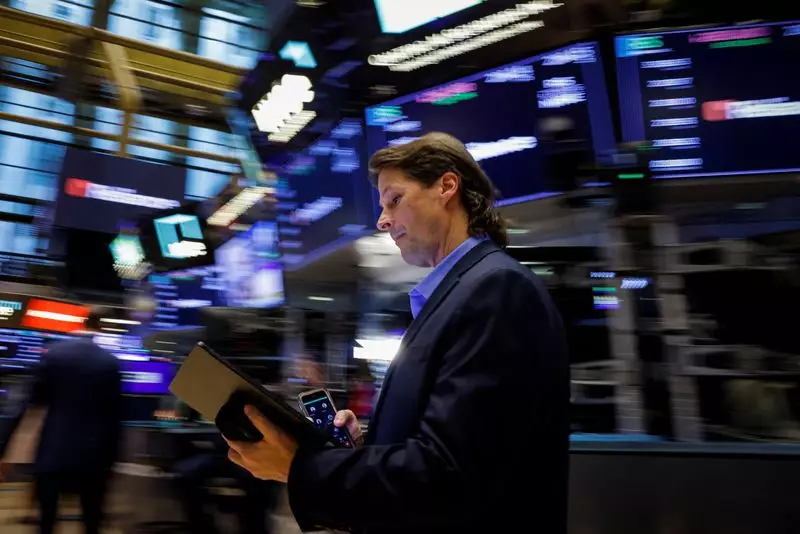In an ever-fluctuating landscape, the equity markets on Friday painted a picture of cautious optimism as the blue-chip Dow Jones Industrial Average reached an all-time high. Investors were quick to react positively to a mild inflation report, indicating lower interest rates would benefit smaller companies. The atmosphere on Wall Street was vibrant, albeit with mixed signals as the S&P 500 and Nasdaq composite indices recorded minor declines. Yet, overall, the market seemed stable enough to secure third consecutive weekly gains across all major indexes.
Liz Young Thomas, head of investment strategy at SoFi in New York, articulates the prevailing sentiment succinctly: the market is largely pricing in the prospect of a “soft landing.” This term refers to an ideal scenario where the economy can decelerate without entering a recession, something that investors have placed their faith in. The overarching narrative is that inflation has been contained, allowing the Federal Reserve to pivot towards a more accommodating monetary policy without placing undue stress on the economy.
According to the latest reports from the Commerce Department, there has been a moderate increase in consumer spending, coupled with a steady decline in inflationary pressures. Additional insights from the University of Michigan revealed an improvement in consumer sentiment, with a final September reading of 70.1 exceeding the expected 69.3. This boost in consumer confidence is critical as it fuels spending, driving economic growth and potentially offsetting declining sales in certain sectors.
As observed in market movements during the session, the Dow Jones surged by 191.49 points, reflecting a positive environment, whereas the S&P 500 dipped slightly by 3.51 points. This juxtaposition signifies ongoing investor hesitance toward technology stocks, which faced slight setbacks. An alarming trend materialized as the technology sector, particularly represented by giants like Nvidia witnessing a 2.56% drop, weighed on the overall performance of the Nasdaq composite, which fell 58.08 points.
Small-cap stocks, often seen as bellwethers for domestic economic performance, experienced a boost thanks to prevailing lower interest rates. The Russell 2000 index surged by 1.5%, reaching a one-week high as investors turned their eyes toward smaller companies that typically thrive in a more favorable rate environment. Such movements signal a possible transformation in market sentiment as investors began to anticipate opportunity in areas considered riskier relative to large-cap stocks.
Diverging sector performances were also notable. Energy stocks led the performance with a 1.61% increase, suggesting strong demand and further likelihood of price increases in crude oil. Meanwhile, ongoing softness in tech stocks juxtaposed with the gains in energy and small-cap indexes hints at an uncertain future for the tech-heavy Nasdaq, potentially diminishing its role as a market leader.
International developments also played a crucial role in the day’s trading. The Chinese central bank’s decision to lower interest rates injected positivity into U.S.-listed shares of Chinese firms such as Alibaba and PDD Holdings, both of which recorded significant daily gains. This flood of optimism extended to miners and resource companies, spurred by favorable overseas economic measures, thereby enhancing market performance on U.S. soil.
In the individual stock scene, Bristol-Myers Squibb climbed by 2.63% following FDA approval for a new schizophrenia drug, contrasting sharply with Costco, which dropped 1.92% after reporting disappointing fourth-quarter revenues. Such mixed results create a complicated environment for investors attempting to strategize amidst fluctuating performances across sectors and individual stocks.
As the week rolls on, all eyes will be fixed on upcoming labor market reports, potentially providing further clues on the economy’s direction. Finally, with Fed commentary expected soon, particularly from Governor Michelle Bowman, the discussion surrounding monetary policy and its implications will be elevated. It’s evident that while investors remain hopeful, the interplay of sector performance, global economic shifts, and domestic consumer sentiment will significantly shape market sentiment in the weeks to come.

